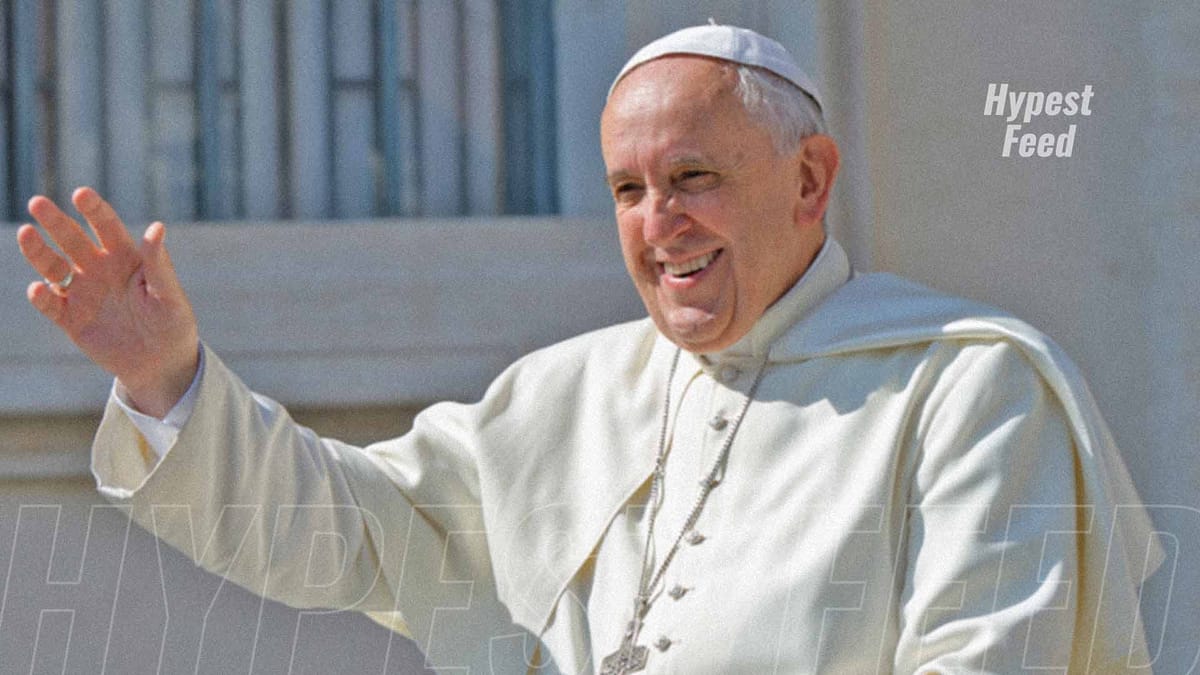Pope Francis experienced a brief hospitalization in Rome on Wednesday, prompted by persistent flu symptoms that had plagued him for several days. The Holy See clarified that the hospital visit was primarily for diagnostic purposes, and the pontiff has since returned to the Vatican. His recent health concerns led to the cancellation of scheduled appearances on both Saturday and Monday, although he did manage to preside over the traditional Sunday blessing.
At 86 years old, Pope Francis's health has been a subject of concern, particularly after he was heard coughing repeatedly during Ash Wednesday services earlier in the month. This incident, coupled with his recent bout of flu symptoms, underscores the challenges he faces in maintaining his well-being.
In recent years, the pontiff has grappled with various health issues, including undergoing surgery to remove a portion of his colon in 2021 due to intestinal inflammation. Additionally, he has been reliant on a cane and wheelchair for mobility for nearly a year, highlighting the physical toll of his advancing age and health complications. Despite these challenges, Pope Francis continues to fulfill his duties and maintain his spiritual leadership, albeit with careful consideration for his health and well-being.
In late 2023, Pope Francis faced yet another respiratory illness, disclosing in November that he had been diagnosed with "acute infectious bronchitis." His medical treatment involved a regimen of antibiotics aimed at combatting the infection, indicating a period of health concerns for the pontiff.
This recent hospitalization, occurring approximately two months following the revelation of his bronchitis diagnosis, coincides with a significant decision made by Pope Francis regarding Catholic doctrine. In a noteworthy move, Francis granted approval for Catholic priests to administer blessings to same-sex couples. Despite this allowance, the Vatican swiftly clarified that such blessings should not be misconstrued as an endorsement of same-sex marriage, affirming the Church's traditional stance on the matter.
The juxtaposition of these events underscores the dynamic and often contentious intersections between health-related issues and matters of religious doctrine within the Catholic Church. Pope Francis's ongoing health challenges, including his recent hospitalization, underscore the physical vulnerabilities faced by the pontiff, while his progressive stance on social issues like same-sex relationships reflects his efforts to navigate the evolving landscape of moral and ethical discourse within the Church. As Francis continues to grapple with health concerns and navigate complex theological debates, his leadership remains pivotal in shaping the direction of the Catholic Church in the modern era.
In mid-December, the United States Conference of Catholic Bishops (USCCB) issued guidance for American Catholics following the introduction of a new policy known as "Fiducia supplicans."
The Vatican's Dicastery for the Doctrine of the Faith (DDF) released a Declaration today, elucidating a differentiation between liturgical (sacramental) blessings and pastoral blessings. The document highlights that while liturgical blessings pertain to sacramental rites within the Church, pastoral blessings are bestowed upon individuals seeking God's grace in their lives, emphasizing a pastoral approach to spiritual care and guidance. The United States Conference of Catholic Bishops (USCCB) relayed this distinction in their statement, underscoring the nuanced understanding of blessings within the Catholic tradition.



Member discussion: